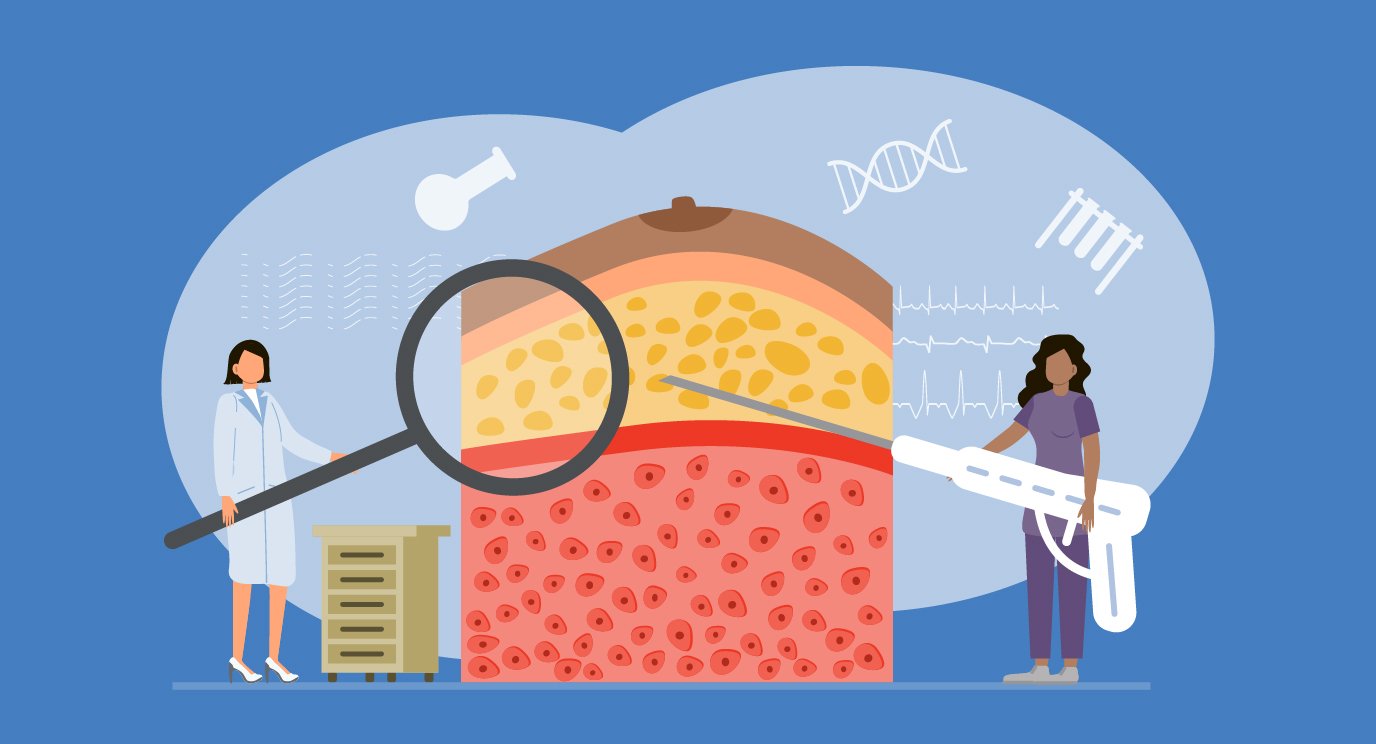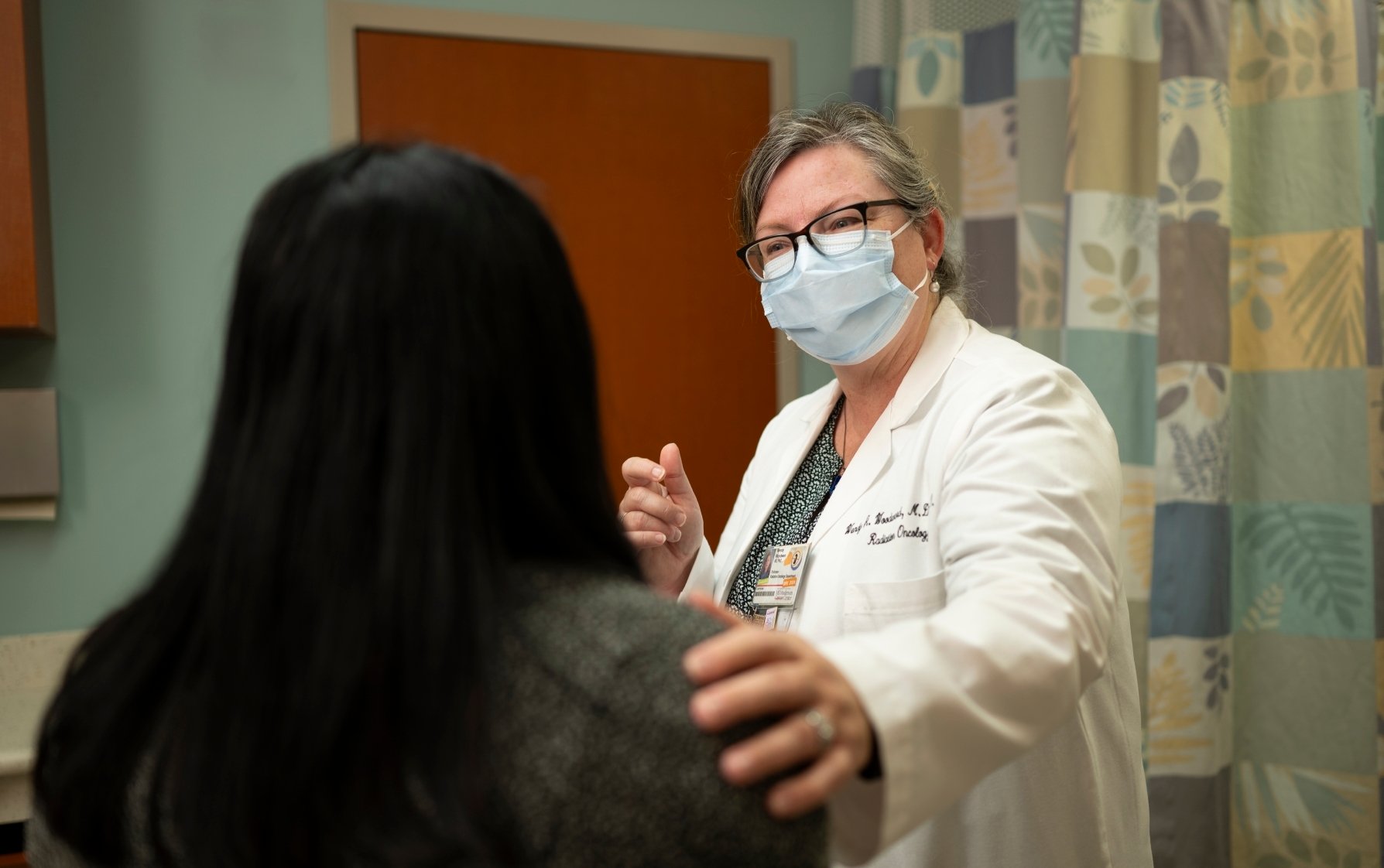- Diseases
- Acoustic Neuroma (14)
- Adrenal Gland Tumor (24)
- Anal Cancer (66)
- Anemia (2)
- Appendix Cancer (16)
- Bile Duct Cancer (28)
- Bladder Cancer (68)
- Brain Metastases (28)
- Brain Tumor (228)
- Breast Cancer (710)
- Breast Implant-Associated Anaplastic Large Cell Lymphoma (2)
- Cancer of Unknown Primary (4)
- Carcinoid Tumor (8)
- Cervical Cancer (154)
- Colon Cancer (164)
- Colorectal Cancer (108)
- Endocrine Tumor (4)
- Esophageal Cancer (42)
- Eye Cancer (36)
- Fallopian Tube Cancer (6)
- Germ Cell Tumor (4)
- Gestational Trophoblastic Disease (2)
- Head and Neck Cancer (4)
- Kidney Cancer (124)
- Leukemia (344)
- Liver Cancer (50)
- Lung Cancer (288)
- Lymphoma (284)
- Mesothelioma (14)
- Metastasis (30)
- Multiple Myeloma (98)
- Myelodysplastic Syndrome (60)
- Myeloproliferative Neoplasm (4)
- Neuroendocrine Tumors (16)
- Oral Cancer (98)
- Ovarian Cancer (172)
- Pancreatic Cancer (166)
- Parathyroid Disease (2)
- Penile Cancer (14)
- Pituitary Tumor (6)
- Prostate Cancer (144)
- Rectal Cancer (58)
- Renal Medullary Carcinoma (6)
- Salivary Gland Cancer (14)
- Sarcoma (234)
- Skin Cancer (294)
- Skull Base Tumors (54)
- Spinal Tumor (12)
- Stomach Cancer (60)
- Testicular Cancer (28)
- Throat Cancer (90)
- Thymoma (6)
- Thyroid Cancer (98)
- Tonsil Cancer (30)
- Uterine Cancer (78)
- Vaginal Cancer (14)
- Vulvar Cancer (18)
- Cancer Topic
- Adolescent and Young Adult Cancer Issues (20)
- Advance Care Planning (10)
- Biostatistics (2)
- Blood Donation (18)
- Bone Health (8)
- COVID-19 (362)
- Cancer Recurrence (120)
- Childhood Cancer Issues (120)
- Clinical Trials (620)
- Complementary Integrative Medicine (22)
- Cytogenetics (2)
- DNA Methylation (4)
- Diagnosis (224)
- Epigenetics (6)
- Fertility (62)
- Follow-up Guidelines (2)
- Health Disparities (14)
- Hereditary Cancer Syndromes (122)
- Immunology (18)
- Li-Fraumeni Syndrome (8)
- Mental Health (116)
- Molecular Diagnostics (8)
- Pain Management (64)
- Palliative Care (8)
- Pathology (10)
- Physical Therapy (18)
- Pregnancy (18)
- Prevention (876)
- Research (384)
- Second Opinion (74)
- Sexuality (16)
- Side Effects (596)
- Sleep Disorders (10)
- Stem Cell Transplantation Cellular Therapy (216)
- Support (404)
- Survivorship (324)
- Symptoms (182)
- Treatment (1762)
How a childhood brain tumor ignited a passion for nursing and breast cancer patient education
BY Meagan Raeke
4 minute read | Published January 17, 2019
Medically Reviewed | Last reviewed by an MD Anderson Cancer Center medical professional on January 17, 2019
Abbey Kaler’s earliest memories of MD Anderson aren’t exactly fond ones. It’s the place she returned to dozens of times for follow-up care after being diagnosed with a childhood brain tumor.
“No matter how long it’d been since my last appointment, I was scared out of my mind because I was going from normal-kid life back to sick-kid life for 48 hours,” Abbey says. But there was a bright spot during the visits: “The nurses were always so nice and warm. They helped put me as much at ease as was possible during such a scary time.”
It was Abbey’s experience with the nurses at MD Anderson’s Robin Bush Child and Adolescent Center that led her to a career in nursing, and back to MD Anderson, where she now works as a nurse practitioner and patient navigator in the Advanced Breast Cancer Clinic.
Early brain tumor symptoms
Abbey’s brain tumor symptoms began when she was nine. At first, her parents thought the headaches, vomiting and exhaustion were due to playing too hard outdoors in the Texas heat. Fortunately, she happened to be scheduled for a routine pediatrician appointment on the day her symptoms escalated.
“I fainted, and when I came to, I had tunnel vision,” Abbey says. Her mom took her to the doctor, who recommended consulting a neurologist, but the first available appointment was weeks away. Sensing that her daughter’s condition was urgent, Abbey’s mother took her to the emergency room. There, a CT scan revealed a brain tumor in Abbey’s cerebellum, the lower, rear portion of the brain.
Juvenile pilocytic astrocytoma: a rare brain tumor
After two surgeries to remove the juvenile pilocytic astrocytoma, a rare, benign brain tumor, Abbey was discharged and transferred to MD Anderson Children’s Cancer Hospital. While she didn’t need any further treatment, she continued to have brain scans and cognitive tests over the next 10 years to monitor her condition and watch for signs of recurrence.
“The nurses were always making the tests into games,” Abbey recalls. Learning about her brain also helped Abbey cope with having a serious health scare at such a young age: “After surgery, I did my school science fair report on different types of brain tumors and the anatomy of the brain. My mom found a coloring book of the brain. It helped me understand what the surgeon did in there.”
Abbey’s return to MD Anderson
As she neared the end of her follow-up care, Abbey was deciding on her college major. She knew she wanted to work in the medical field and decided to go to nursing school. In 2012, a few months after graduating, she came back to MD Anderson – this time as a bedside nurse in the Clinical Center for Targeted Therapy, which treats patients with drugs that are in Phase I of the clinical trials process.
“As a bedside nurse, I would always tell my patients that knowledge is power,” Abbey says. “A lot of my patients were very sick. So if I, as a nurse, could use any of my knowledge to help them have a bit more control over the situation and feel a little less scared, that was the biggest gift I could give.”
Navigating through education
In 2015, Abbey went back to school to get her master’s degree in nursing and her nurse practitioner certification. This type of advanced practice registered nurse can write prescriptions, make referrals and provide a higher level of patient care.
Soon, she was hired to a new position within MD Anderson’s Advanced Breast Cancer Clinic. As a patient navigator, Abbey works with metastatic breast cancer patients to coordinate their care and teach them about their disease and treatment plans.
“After the patient and their doctor decide on a treatment plan, I help the patient execute the plan,” Abbey says. “Patient education is one of the things I love most as a nurse. I’ll look at the bigger picture of what else is going on in their life and see what I can do to help decrease any fears or concerns they’re experiencing.”
Advice for cancer patients
Today, the only physical reminders Abbey has of her brain tumor are the scar and metal plate at the back of her head.
But she continues to draw on her experience to give advice to the patients she sees: “Your diagnosis may be scary and it may change the path you thought you were on, but don’t let it define you,” Abbey says. “Your story doesn’t have to end with cancer.”
Request an appointment at MD Anderson online or by calling 1-866-906-2512.

Don’t let your diagnosis define you.
Abbey Kaler
Survivor & Patient Navigator





